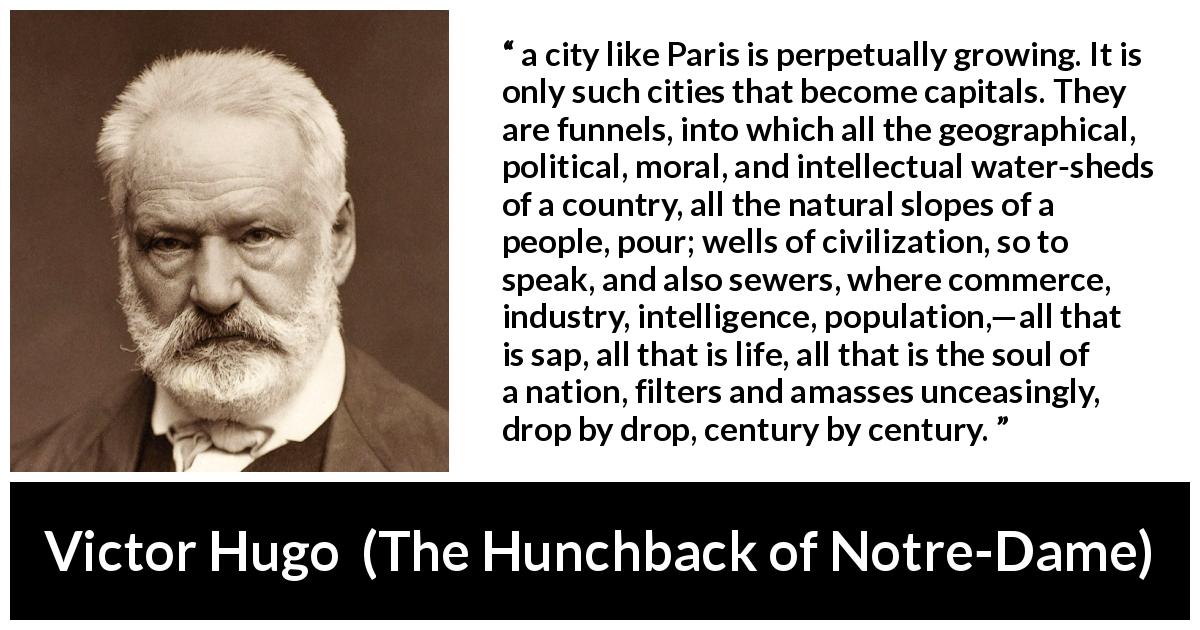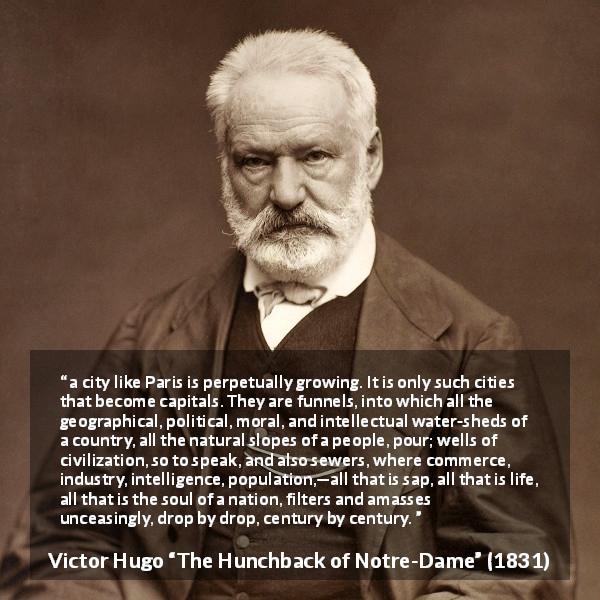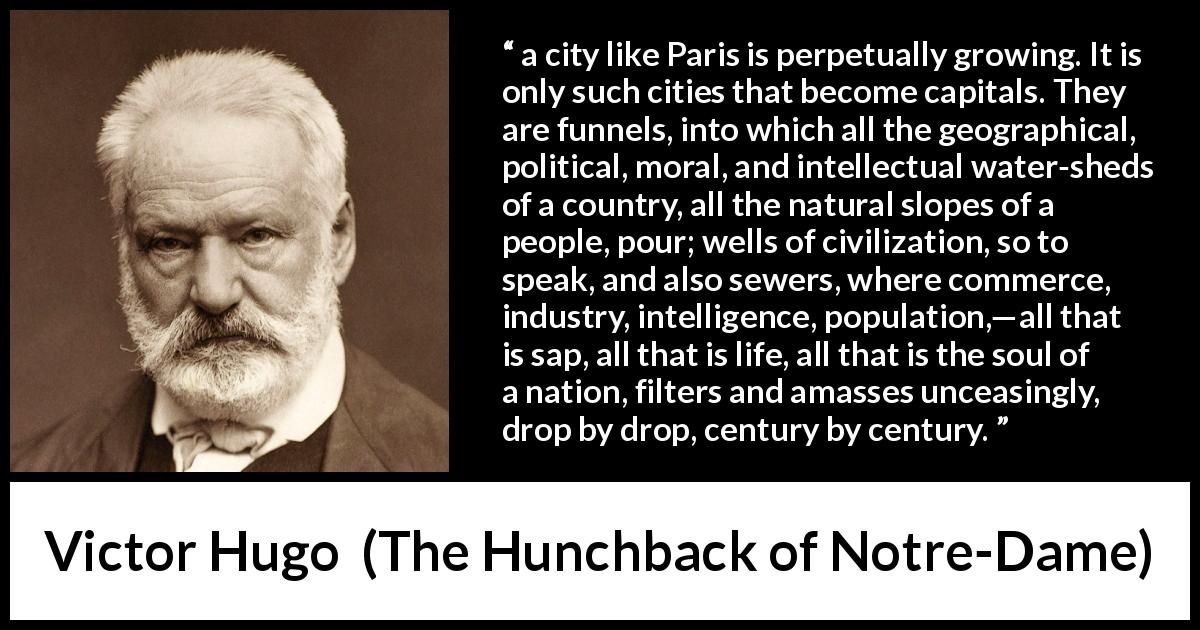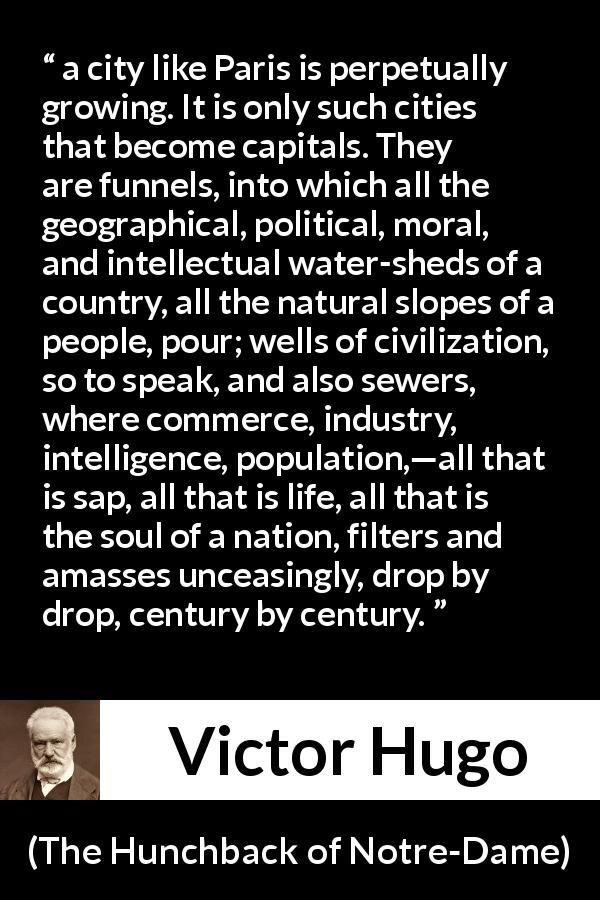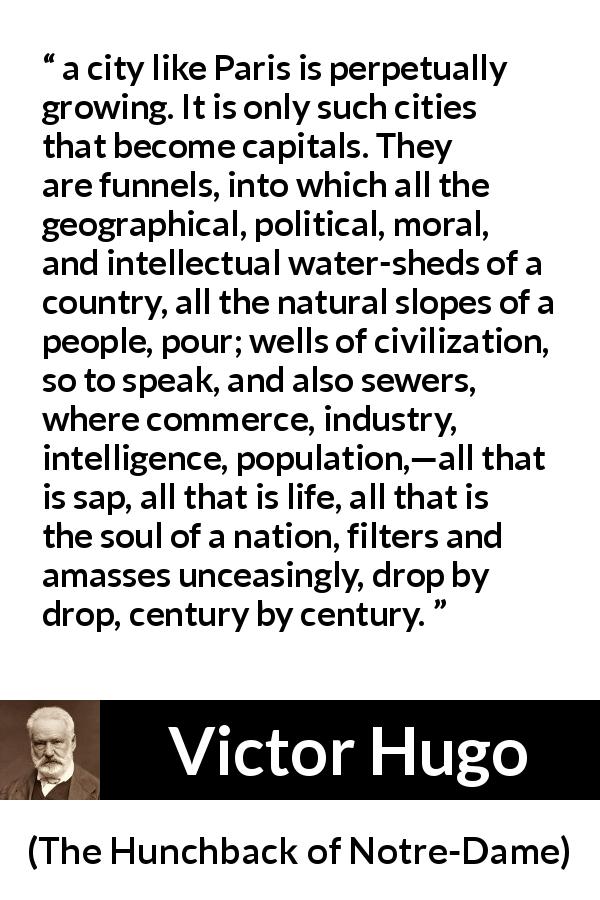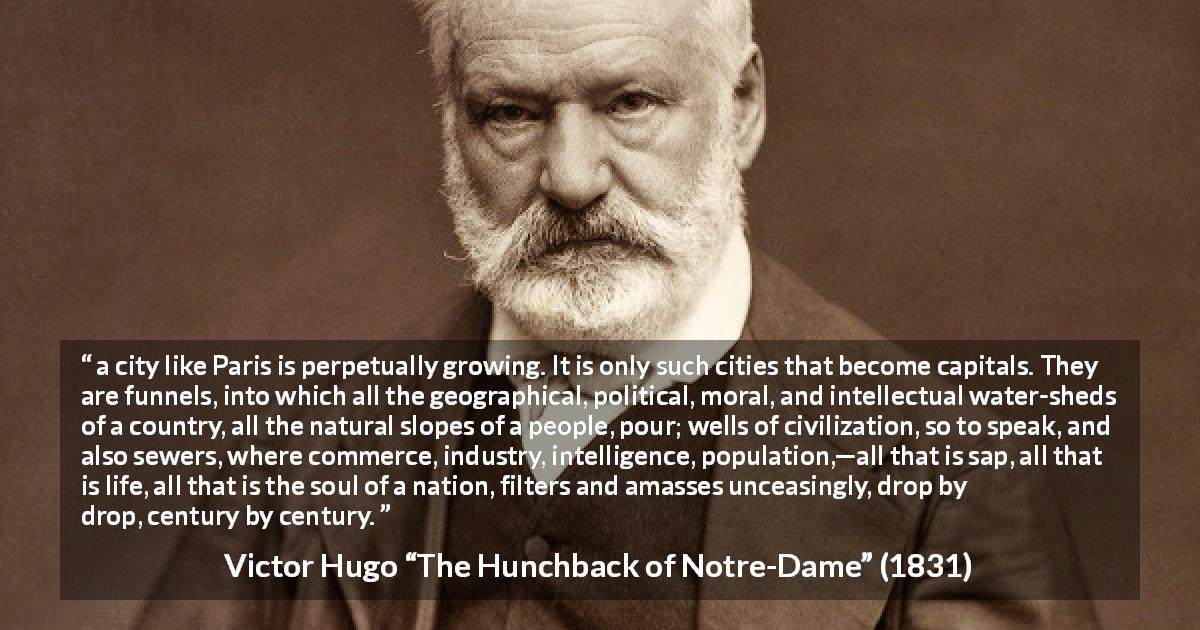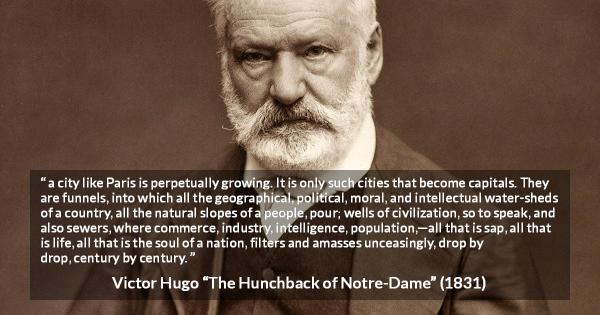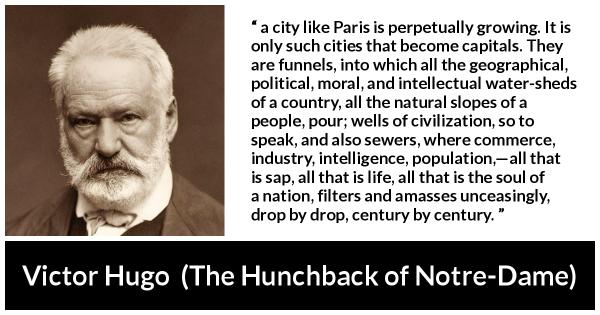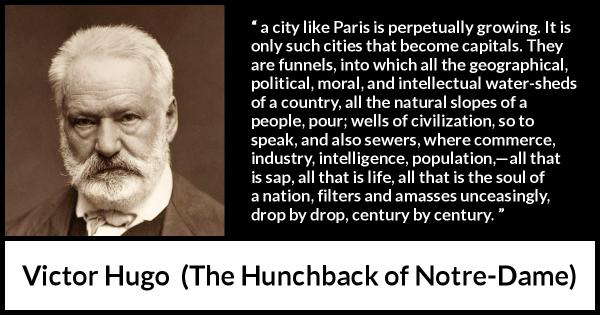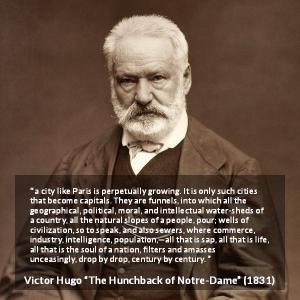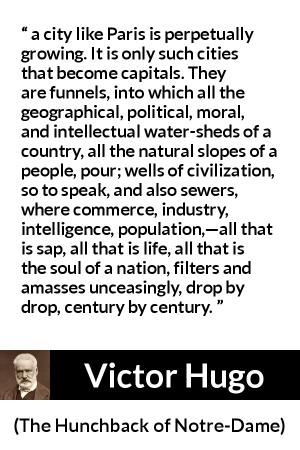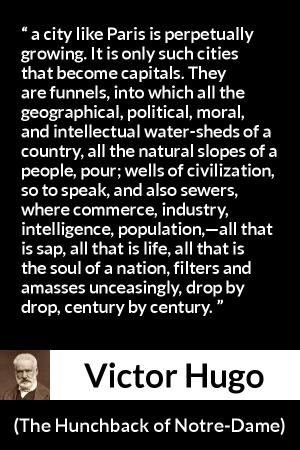“ a city like Paris is perpetually growing. It is only such cities that become capitals. They are funnels, into which all the geographical, political, moral, and intellectual water-sheds of a country, all the natural slopes of a people, pour; wells of civilization, so to speak, and also sewers, where commerce, industry, intelligence, population,—all that is sap, all that is life, all that is the soul of a nation, filters and amasses unceasingly, drop by drop, century by century. ”
Victor Hugo, The Hunchback of Notre-Dame (1831). copy citation
| Author | Victor Hugo |
|---|---|
| Source | The Hunchback of Notre-Dame |
| Topic | history culture Paris |
| Date | 1831 |
| Language | English |
| Reference | |
| Note | Translation by Isabel F. Hapgood in 1888 |
| Weblink | http://www.gutenberg.org/files/2610/2610-h/2610-h.htm |
Context
“There they plant themselves squarely, cut themselves gardens from the fields, and take their ease. Beginning with 1367, the city spreads to such an extent into the suburbs, that a new wall becomes necessary, particularly on the right bank; Charles V. builds it. But a city like Paris is perpetually growing. It is only such cities that become capitals. They are funnels, into which all the geographical, political, moral, and intellectual water-sheds of a country, all the natural slopes of a people, pour; wells of civilization, so to speak, and also sewers, where commerce, industry, intelligence, population,—all that is sap, all that is life, all that is the soul of a nation, filters and amasses unceasingly, drop by drop, century by century.
So Charles V.'s wall suffered the fate of that of Philip Augustus. At the end of the fifteenth century, the Faubourg strides across it, passes beyond it, and runs farther. In the sixteenth, it seems to retreat visibly, and to bury itself deeper and deeper in the old city, so thick had the new city already become outside of it.” source
So Charles V.'s wall suffered the fate of that of Philip Augustus. At the end of the fifteenth century, the Faubourg strides across it, passes beyond it, and runs farther. In the sixteenth, it seems to retreat visibly, and to bury itself deeper and deeper in the old city, so thick had the new city already become outside of it.” source
